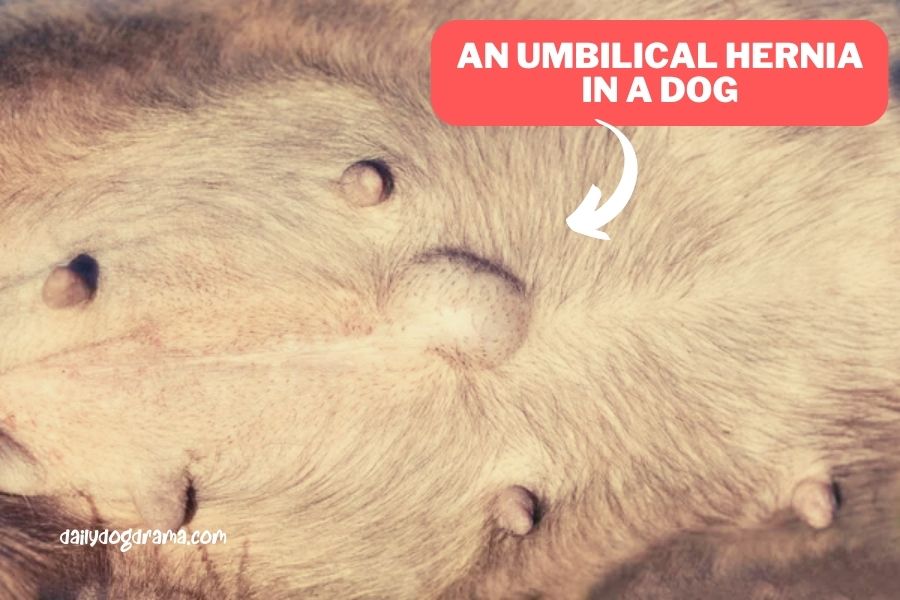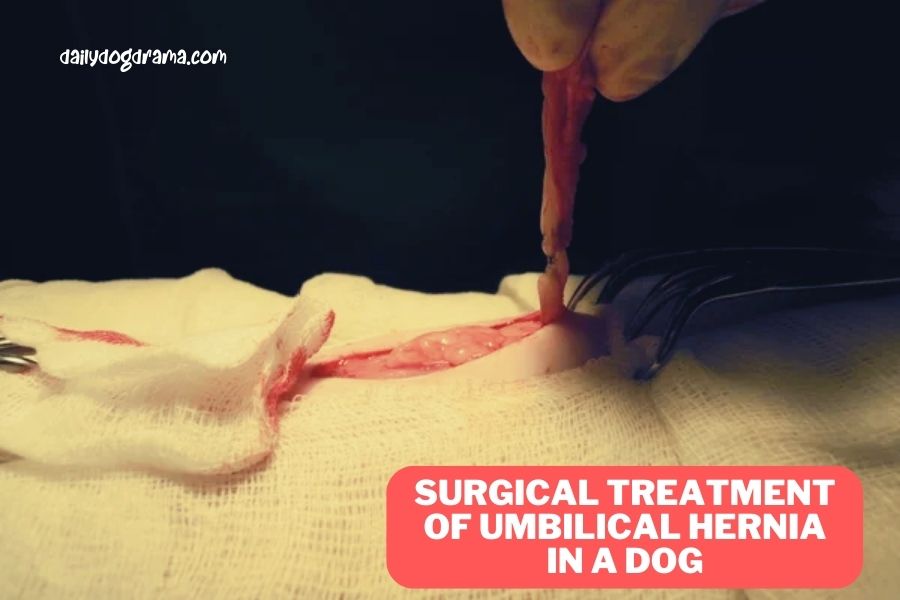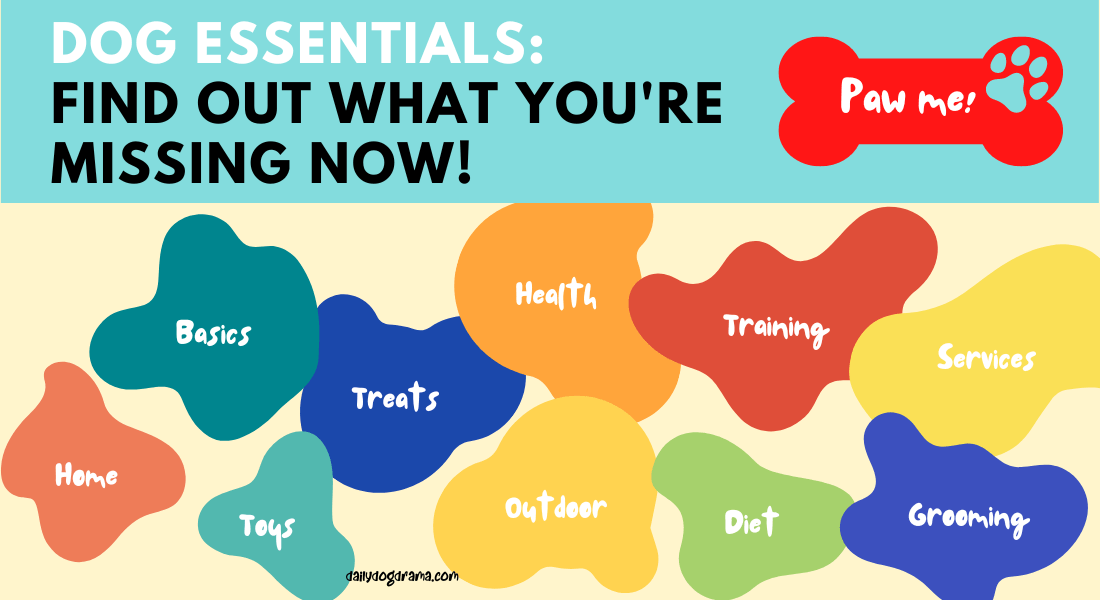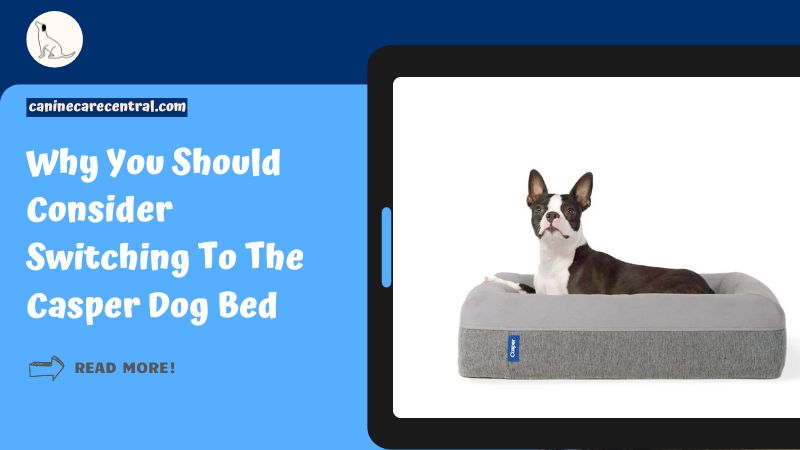Do you know what DOG ESSENTIALS you are missing out? Find out now!
Zack Keithy, our author, is a certified veterinarian technician (UC Blue Ash) for over 6 years (contact him here). The articles written here are based on his expertise and experience, combined with a review by our expert vet reviewers including Dr M. Tarantino. Learn more about us here.
If you’re planning on getting a puppy, there are some things to consider beforehand, and needless to say, one of the most important things to watch for is their health.
Sometimes, we might find ourselves falling in love with a puppy, only to realize that there is a potential problem such as an umbilical hernia.
You are probably asking then, should I buy a puppy with an umbilical hernia?
An umbilical hernia does not present much of a risk to a puppy and can be easily removed through a simple surgery. Its quality of life will not be impacted, but it is recommended to not breed this puppy as it can be genetic.
In this post, learn more about this condition and how you can deal with it if should you choose to bring the puppy home.
Medical Questions? Talk to a Veterinarian 24/7.
Connect one-on-one with a licensed vet who will answer your questions in minutes.
*Article may contain affiliate links to retailers like Amazon and Chewy. Learn more on our disclosure page.
- What is an Umbilical Hernia in Dogs?
- What Causes Hernias in Puppies?
- Dog Breeds at Risk for Hernias
- Pregnant Dogs With Hernias
- Can an Umbilical Hernia in a Puppy Heal Itself?
- What Should I Do if My Puppy Has an Umbilical Hernia?
- How Much Does It Cost to Fix an Umbilical Hernia in a Puppy?
- Does an Umbilical Hernia Hurt a Puppy?
- Can You Breed a Dog With an Umbilical Hernia?
- In Conclusion: Should I Buy a Puppy With an Umbilical Hernia?
What is an Umbilical Hernia in Dogs?

When there is an opening in the muscular wall where the umbilicus (belly button) is located, this condition is known as an umbilical hernia.
Although you might see a bulge on your pet’s belly, groin, or bottom, it frequently has no or few other symptoms.
This is actually quite common in dogs and is mostly due to genetics and happens when they are born.
Typically, it does not require fixing, but in some cases, the abdominal contents can pass through the opening created by the hernia, which would certainly require intervention.
Doggy says, consider reading this too: Ingrown Dog Whisker [Evereything You Need To Know]
Types of puppy hernias
An umbilical hernia is the most common type of hernia in dogs, but there are some other types that can be present too.
- Perineal hernias
- Inguinal hernias
- Diaphragmatic hernias
- Hiatal hernia
For umbilical hernias, they can be further categorized into reducible and non-reducible.
Reducible (more dangerous) means that you can push the protruded part back into the abdomen, while non-reducible is the opposite.
Doggy says, consider reading this too: Pros and Cons of Neutering a Border Collie [What’s the Right Choice?]
Signs of a strangulated hernia
If the blood flow to the herniated tissue is reduced or stopped entirely, a hernia may become dangerous.
The tissue might die off and have serious repercussions in what is known as a strangulated hernia.
Some of the signs that such a condition is present include:
- Excessive swelling of the hernia
- Fever
- Lethargy
- Obvious severe pain
- Refusal to eat, or vomiting after eating
- Abscess forms at the site
Doggy says, consider reading this too: Overgrown Dew Claws in Dogs
What Causes Hernias in Puppies?
In order to nourish the growing fetus prior to birth, the umbilical blood vessels flow through the umbilical ring, an opening in the abdominal muscles.
If the umbilical ring does not close properly after delivery, it can result in an umbilical hernia.
Symptoms of umbilical hernia in puppies
An umbilical hernia is easily seen when the puppy stands, barks, cries, or strains, as the hernia protrudes from beneath the skin as a soft swelling.
Other symptoms include:
- Noticeable pain
- Lump grows larger as time passes
- Warmth at the swollen site
- Vomiting
- Pain when the area is touched
- Lack of appetite
- Malaise or depression
How serious is an umbilical hernia in a puppy?
Generally speaking, umbilical hernias in pups are pretty frequent and typically don’t require medical attention.
To ascertain whether or whether treatment is required, you should take your puppy to the veterinarian for a checkup.
In some extreme cases, part of the intestines or other tissues might become trapped and strangulate themselves (blood flow is cut off to the tissue, causing its death).
This situation calls for emergency surgery.
What does a hernia look like in a puppy?
You’ll notice a squishy bulge or protrusion on your dog’s belly button if she has an umbilical hernia.
A lot of times, it is not noticeable and can only be detected when you touch the area.
Dog Breeds at Risk for Hernias
Although hernias are not uncommon in dogs, there are some breeds that are more predisposed to getting one.
- Airedales Terrier
- Australian Cattle Dog
- Basenji
- Basset Hound
- Cocker Spaniel
- Dachshund
- Pekingese
- Pointer
- Weimaraner
Pregnant Dogs With Hernias
It’s common for a dog to get a hernia while she is pregnant.
Her fluctuating hormones, especially estrogen, have an impact on her connective tissues, which is why this happens.
In some circumstances, if one or more puppies are pushed into the herniated area, it may be fatal for the mother as well.
If you have a pregnant dog who has a hernia, consult a veterinarian right away.
Doggy says, consider reading this too: Do dogs fart more during pregnancy?
Can an Umbilical Hernia in a Puppy Heal Itself?
An umbilical hernia may not be able to heal without medical attention, but it does happen if it is very small in size (less than 1 cm).
If an umbilical hernia does not close on its own, your dog will need surgery to correct the problem.
What Should I Do if My Puppy Has an Umbilical Hernia?

Most often than not, surgery is your best option.
Treatment options depend on how severe the hernia is and whether or not complications have occurred due to it.
If your puppy’s umbilical hernia is mild and hasn’t caused any complications, you may need only watch him closely over time to make sure that he doesn’t experience any problems related to his umbilical hernia.
In other cases where complications are present or if the hernia is more severe, surgery may be recommended by your veterinarian.
Surgery can involve removing part of the intestines that have been pushed outside of their normal location through an incision made near where they exit from the abdomen wall.
Doggy says, this might interest you too: Are Eggs Good for Nursing Dogs? [How to Feed?]
How Much Does It Cost to Fix an Umbilical Hernia in a Puppy?
The cost of surgery will depend on your location, but in general, across the United States, an operation like this has a range in pricing from $150 for a simple procedure to $2,500 in complicated cases.
Oftentimes, the hernia is detected early and is fixed at the same time when you neuter or spay your dog.
This can help lower the cost.
Alternative treatment for umbilical hernia in puppies
There has been some evidence that using some kind of wraps such as belly wraps can help with umbilical hernias closing and healing, but this information is very limited.
In the best interest of your dog, your best bet is to go for the operation rather than try out alternative treatment methods.
Any complications caused by the hernia can lead to death and should not be taken lightly.
Does an Umbilical Hernia Hurt a Puppy?
The good news is that most puppies manage their umbilical hernias without any problems or pain.
However, if you notice your puppy having trouble standing up due to discomfort from an umbilical hernia or if you notice that your pup seems to be in pain when he moves around too much, then it may be time for him to see a vet.
Can You Breed a Dog With an Umbilical Hernia?
Yes, but it’s not recommended.
The reason is that the hernia can become larger and more problematic after a dog has been pregnant.
In some cases, the hernia will actually rupture during pregnancy, which can cause serious complications for you and your dog.
Also, this trait will be passed down to the next generation of puppies, which should be a key factor in not breeding a dog with a history of umbilical hernia.
Can a dog with a hernia have puppies?
Yes, a dog with a hernia can have puppies, but there are some caveats.
During pregnancy, the weight of the puppies can cause them to push through the abdominal wall and cause a “ruptured” or “open” hernia.
This is a life-threatening condition, and thus, it is not recommended for a dog with a hernia to have puppies.
In Conclusion: Should I Buy a Puppy With an Umbilical Hernia?
It is quite disconcerting if you see a puppy you want to buy has an umbilical hernia, but in most cases, they are pretty harmless and can be easily fixed.
You should discuss with the breeder about the terms of purchase.
In many cases, a breeder will allow a period of time when you can bring the puppy to your own vet for a check-up.
If your vet gives the all-clear, then there is really no reason to pass on that cute little pup you have fallen in love with.
Check out other dog care tips such as why does my breeder require Nuvet, why my puppy holds pee all night but not during the day, giardia in puppy from breeder, and many more!
You’ve made it to the end, but I hope it’s not the end of our journey. We want to hear your voice! Share your thoughts, problems, suggestions, or anything related to your dog in the comments section. And don’t forget to join our newsletter today too.




